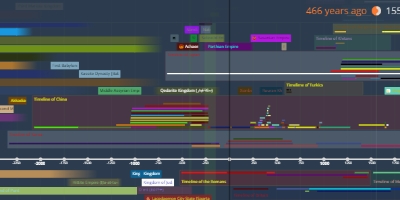Nanda Empire (jan 1, 475 BC – jan 1, 322 BC)
Description:
The Nanda dynasty ruled in the northern part of the Indian subcontinent during the 4th century BCE, and possibly during the 5th century BCE. The Nandas overthrew the Shaishunaga dynasty in the Magadha region of eastern India, and expanded their empire to include a larger part of northern India. Ancient sources differ considerably regarding the names of the Nanda kings, and the duration of their rule, but based on the Buddhist tradition recorded in the Mahavamsa, they appear to have ruled during c. 345–322 BCE, although some theories date the start of their rule to 5th century BCE.Modern historians generally identify the ruler of the Gangaridai and the Prasii mentioned in ancient Greco-Roman accounts as a Nanda king. The chroniclers of Alexander the Great, who invaded north-western India during 327–325 BCE, characterise this king as a militarily powerful and prosperous ruler. The prospect of a war against this king led to a mutiny among the soldiers of Alexander, who had to retreat from India without waging a war against him.
The Nandas built on the successes of their Haryanka and Shaishunaga predecessors, and instituted a more centralised administration. Ancient sources credit them with amassing great wealth, which was probably a result of introduction of new currency and taxation system. Ancient texts also suggest that the Nandas were unpopular among their subjects because of their excessive taxation, and their general misconduct. The last Nanda king, Dhana Nanda, whose name means "Wealthy Nanda", was overthrown by Chandragupta Maurya, the founder of the Maurya Empire, and the latter's mentor being Chanakya.
Added to timeline:
Date:
jan 1, 475 BC
jan 1, 322 BC
~ 153 years
